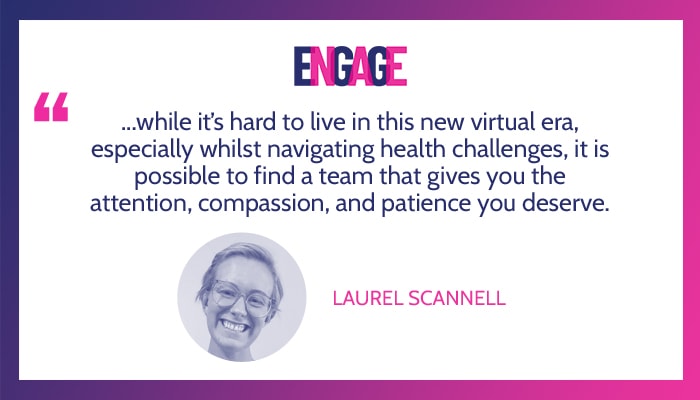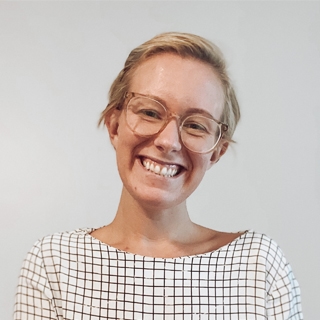
Your Team Works For You
Oct 18, 2021Hi, I’m Laurel, I’m 27 years old and a stage IIB Invasive Ductal Carcinoma survivor.
In November of 2019, when my daughter was just two months old, I went to my primary care physicians office for a lump I found in my breast. I met with the nurse practitioner who assured me that the lump was just breastfeeding related, even she herself got them from time to time. She put in for an ultrasound just in case, but there was no rush.
There was a rush.
I noticed a dimple in my breast the next day when stepping out of the shower.
Still, there was no rush on her end.
I fought hard for them to fit me in. I needed to know she was right, that it was nothing.
When I did go in for the ultra sound a week later, I left the office in tears continuously staring at the patient portal that reiterated what the radiologist had just said- “1.8 x 2.2. x 2.6 cm irregularly-shaped hypo echoic mass with speculated margins and posterior acoustic shadowing” Followed by “BIRADS-5, highly suggestive of malignancy”
Trust broken. This isn’t what I would call fine.
I met with so many doctors in such a short period of time I can hardly remember them all, but what I do remember is wondering if they were making the right call. If what they told me was true.
Shortly after I started chemotherapy, the country shut down for COVID.
I was coping with cancer, being a new mom and battling a ruthless eating disorder all at the same time and the only doctor I was able to see in person was my oncologist.
I didn’t want to acknowledge it at the time, but I needed more than just an oncologist. I needed psychiatric care. I needed a team.
How on Earth am I ever going to trust someone through a camera?
Truth is- at first I didn’t trust my psychiatrist at all. I was very disconnected during the calls and just eager to hang up and get on with my life.
The weeks passed by and she kept showing up for me – she listened to me intently. She validated me.
She validated me.
She showed me that two things could be true at once.
She showed me patience.
She showed me she cared- she took time out of her schedule to return my calls when I was distressed.
She showed up for me when I was in a holding room waiting to be placed in a psych hospital.
She didn’t let me sneak things by her.
She called me out.
She was real.
She gave me words that I could hold onto.
All of those things mentioned above showed me that she always had my best interest in mind.
She showed me that developing a virtual patient doctor relationship was possible, and allowed me to let my guard down enough to meet with other practitioners virtually.
I wish I had a concrete list of qualities and behaviors your virtual medical team should give you in order to gain your trust, but truth is, trust is earned by different people in different ways.
What I can tell you is that your team works for you, and don’t forget that. If your team doesn’t make you feel cared for, if they don’t listen actively, if they don’t respect your decisions- hire a new team. There’s no shame in that. Not everyone’s going to be your cup of tea.
I’ll leave you with this- while it’s hard to live in this new virtual era, especially whilst navigating health challenges, it is possible to find a team that gives you the attention, compassion, and patience you deserve. If you told me this in March of 2020 I would have told you that you were out of your mind- but Dr. Kelly Irwin proved me wrong, and has given me care beyond what I could have ever imagined.
Thank you Dr. Irwin, for all the days you were patient, the days you were kind, the days that you listened, and the days you called me out on my decisions. You showed me that developing trust virtually is possible.
I hope all of you find your Dr.Irwin.
Thank you.

Laurel Scannell
...while it’s hard to live in this new virtual era, especially whilst navigating health challenges, it is possible to find a team that gives you the attention, compassion, and patience you deserve.
Sign Up for Our
Quarterly Newsletter!
Join the Engage Initiative
to learn more about upcoming
events, stay up-to-date on
all of our efforts, and
help us bridge the divide!









